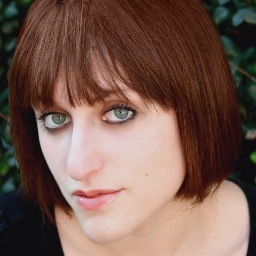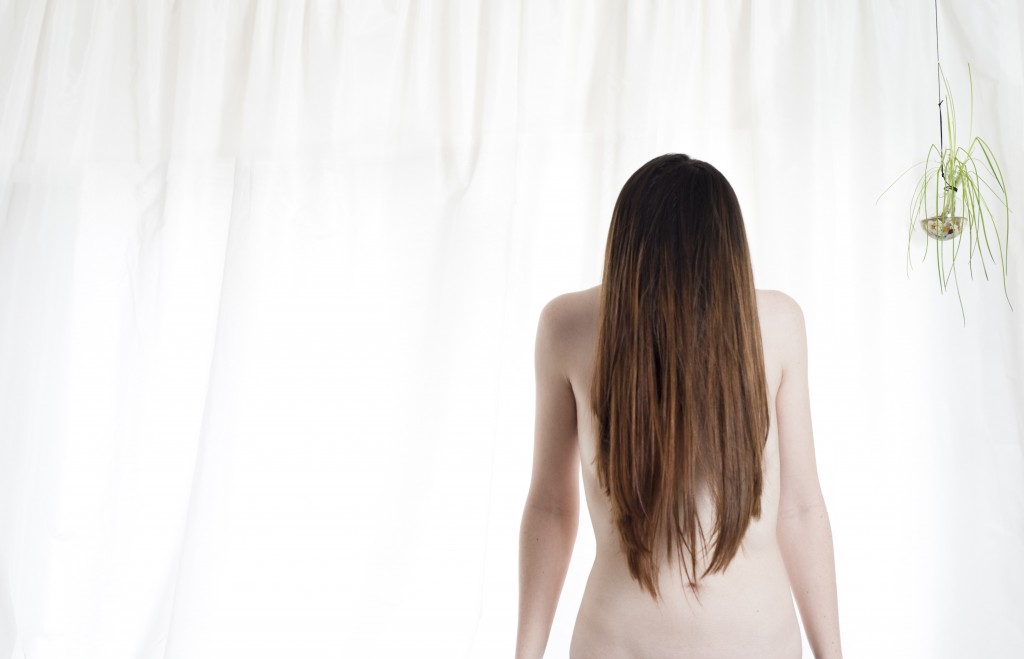Period Problems: Understanding 3 of the Most Common Menstrual Disorders

This is the first interview in a series about what it’s really like to cope with chronic illness every day. How do you deal with the physical symptoms, emotional turmoil and practical problems? Today Kaila Prins of In My Skinny Genes shares her story about living with an eating disorder and how blogging about it helped her heal.

I’m a 26 (soon be 27–where did the time go?) year old Marketing Copywriter living in San Jose, CA. I’m also a certified personal trainer, an exercise addict, and a recovering anorectic. I currently blog about disordered eating and exercise at inmyskinnygenes.com and run the Finding Our Hunger podcast. On the podcast, we talk to everyday people as well as “personalities” about their journey instead of the end point, and we share stories of working through issues of disordered eating, body image, identity, career goals, perfectionism, and building community in this strange, wonderful constantly-changing world.
I can tell you the exact date, down to the second. It was July 4, 2001, about 10 in the morning. I was 13 years old. In May, I had stopped eating processed foods after I started randomly breaking out in hives during the first week of summer camp. My mother said the hives were probably due a food sensitivity to soy–which is present in pretty much anything that comes in a box, can, or package. I also started exercising for the first time in my life. I dropped all of my baby fat and, on July 4, for the first time, I put on a bikini, looked in the mirror, and felt…sexy. A few hours earlier, I had gotten my period for the first time. A few hours later, my very first boyfriend would bring me a bouquet of flowers and tell me I was beautiful. I realized that whatever I was doing, I was doing something “right.” So I figured that I should do more of it to get even better results. I was 97 pounds (and 5’5”) by the end of the summer.
As they say in 12 step programs, it’s one day at a time. When I was in the worst throes of my second relapse in 2009, I knew that I wanted to end my addiction (because that’s what an eating disorder is, after all), but I also realized that, as with any addiction, it is something I will deal with my whole life. At the time, that realization was cause for despair.
Now, I see it as a challenge, and one that I want to overcome every single day. That means that every morning I have to actively work to shut the negative voice in my head off. Every morning I have to make the choice to eat well, to not count calories, to not feel guilty and go and exercise specifically because I “ate too much” or “am too fat.” Everything I choose to eat or not is because I am honoring my hunger and not denying it; every time I choose to exercise or not, it is because I want to have flexibility, strength, and power, not because I want to look like someone from the pages of a magazine.
I also have to deal with the obsessive-compulsive tendencies and social anxiety that comes part and parcel with the disorder. I’ve spent years avoiding social situations where I have to eat with people, and that has made finding and keeping friends very difficult. This is still something I’m working on, and still something I grapple with every day.
I never got the professional help that I needed. While I did see a psychologist in grad school, it was “because” I was suicidally depressed, not because I had a problem with food. (Now I know that restricting foods, especially healthy fats, can cause a severe imbalance in brain chemistry, leading to increased risk of depression, anxiety, thoughts of suicide, etc.)
My turning point happened when I lost my period for the second time last May. (I had lost it for about 5 months during my second relapse in 2009, but it came back as soon as I increased my caloric intake. I was not so lucky the second time around.) I was, at that point, a vegan (and using veganism as an excuse for restricting calories and only eating/drinking green smoothies and vegan protein powders). I had been bloated, covered in acne, and feeling tired and depressed for months…and then my period stopped. I was 25.
Losing the one thing that makes me a healthy, functioning, fertile female made me realize that I was doing a lot more damage to my body than I had previously cared to admit to myself–and there are more important things in life, like fertility and functioning hormones, than just being thin.

It’s really hard to cope with an eating disorder, because EDs thrive in secrecy. And when you don’t have a network of friends nearby who can drag you out of your bedroom and force you to experience the best parts of life, it’s very easy to just stay hidden away, letting the bad thoughts fester.
That said, as a life-long writer, I’ve found that publicly blogging about my ED has helped me tremendously–more than any psychologist’s visit or private conversation with my family. Why? Because it’s cathartic, yes, but cathartic in a public forum where I’ve not only shared my story but also built a community. I have a network of men and women who are at different stages of dealing with their own relationships to food, and it reminds me that I’m not alone–and that I can actually be a role model for those who want to heal as well. Knowing that there are others out there (like my own sister) who are counting on me to stay healthy is a huge motivating factor.
In fact, this public writing process has inspired me to become a health coach. I’ve just committed to a year studying at the Institute for Integrative Nutrition so that I can better support others who are trying to cope with the healing and recovery process in a way that was never accessible to me.
I’m actually still dealing with the fallout. My body is metabolically broken, and I can no longer process sugar well. I lose muscle and put on fat quickly, and struggle with food cravings and a lack of satiety even when I’m full.
Worse, I still haven’t menstruated despite being in recovery for over a year. My female hormones are imbalanced (which has done a number on my thyroid), and I have terrible, embarrassing cystic acne that has left me covered in scars. I’ve managed most of my symptoms through food, if you can believe it–eating lots of healthy fats (coconut, red meat, red palm oil, egg yolks) and organ meats and bone broth, as well as limiting sugar. Step two, now, is fixing the hormonal issues. I know that it’s not something I can do alone, so I’ve engaged the help of a functional medicine doctor. I just started seeing him last Friday, but I’m hopeful that he will be able to help me put together the last pieces of the puzzle soon.
That’s a tough question. I think my answer has two parts, and they’re both inversely related but dependent on one another:
What I mean by all of the above: You get one body, and one life to live in it. If you spend your life looking inward and nitpicking until you tear it apart, you’ll have a short life, and not a very pleasant one at that. If you treat yourself right by eating for health instead of abs and spending your time obsessing about your friends and family (and the wonderful experiences you can have with them) instead of eating for abs and obsessing about your physical appearance at the expense of building a life for yourself, then it’s very easy to let ED in.
If you are feeling hopeless, like this is just a nice sentiment but not something you can do, just give it a try. Reach out. Find a friend. Call a family member. Start a blog. Send me an email–I’ll always reply. Stop hiding–remember: ED thrives in secrecy. Just take the first step, no matter how scary it seems, and I promise the second step gets a little easier.
Also: you are more than your body. And your body is beautiful. That means you are already more than beautiful. Go out and share that beauty with the world, whatever that means to you. Are you an artist? A business person? An activist? A parent? A friend? Your identity is dynamic and when you embrace it, the world embraces you, no matter the size of your “skinny jeans.”
Thank you so much for sharing your story, Kaila! For more advice on how to cope with eating disorders, check out inmyskinnygenes.com and the Finding Our Hunger podcast.
Do you struggle with disordered eating, excessive exercising and a negative body image? What helps you get through bad days?